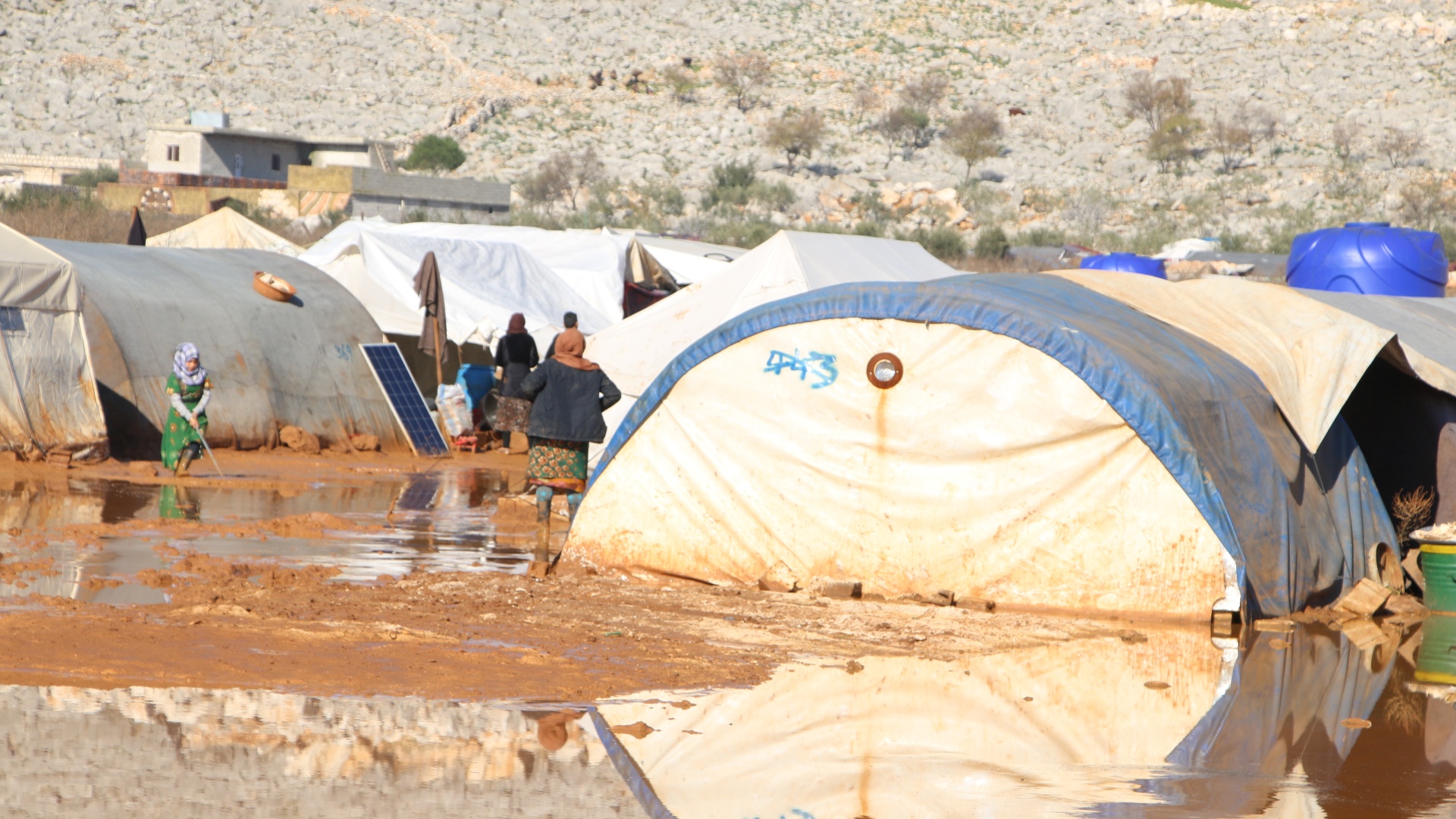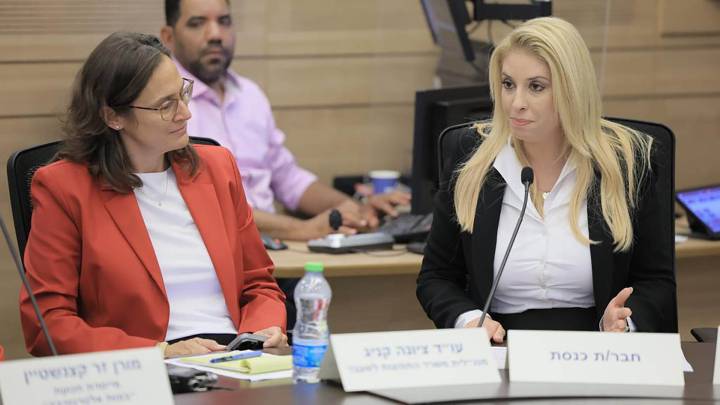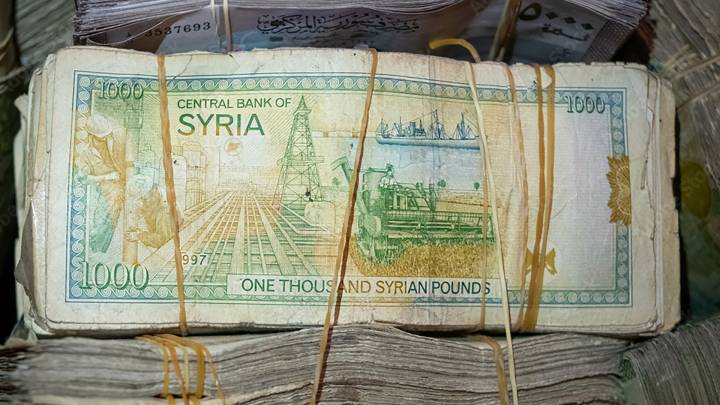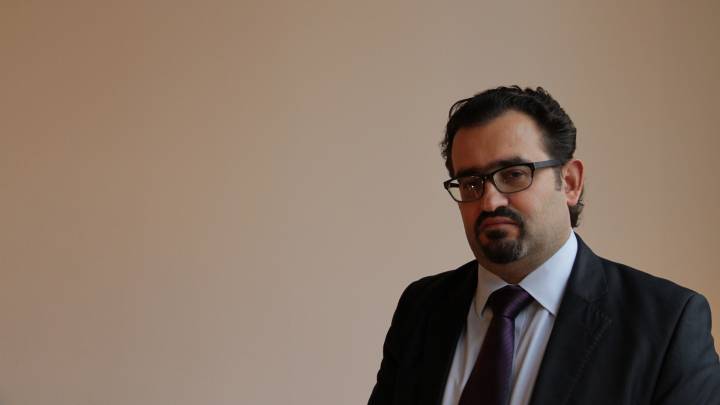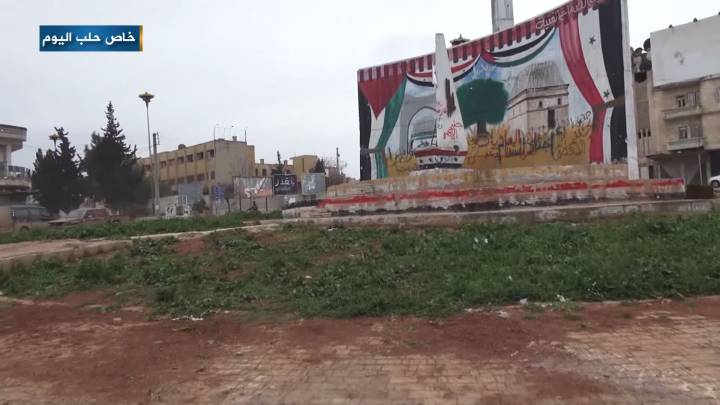The situation in Idlib remains dire. Idlib-native Merna Alhasan, spoke to zenith about the recent assaults on the city, covering the story as a female journalist, and how the Assad regime controls the narrative on the war in Syria.
Military operations targeting eastern Idlib by Russian-backed forces have intensified since the beginning of 2019, especially from February onwards. These have included air strikes and shelling. By the end of November 2019, the Syrian regime, supported by the Russians and Iranian-backed militias, had stepped up the bombardment of the countryside in southern and eastern Idlib province. After the offensive in Idlib province intensified, Russia and Turkey announced a ceasefire on 9 January. However, a day later, regime aircrafts executed nearly 55 strikes in Idlib.
zenith: What role does Russian support play for the intensifying campaign waged by the Assad regime to retake Idlib?
Merna Alhasan: The Russian air force plays a pivotal role in the battle for Idlib. Its advanced jets and helicopters can easily hit multiple targets at once with a high degree of accuracy, causing extensive damage to infrastructure and housing. The joint Syrian-Russian shelling has turned parts of the city into crematoriums for their inhabitants, and many of the surrounding villages, such as Maaret Hurmah, Sheikh Mustafa, Kafar Sijnah and Rakaya, have been razed completely.
As somebody who has lived the realities of the Syrian crisis since March 2011, how does the recent regime assault on Idlib differ from previous attacks?
The recent military escalation is of a different intensity and scope to previous attacks. One minute the Russian warplanes launch tens of rocket-propelled grenades, while simultaneously dozens of barrel bombs are dropped on the exact same spot. Sometimes, internationally-banned phosphorus shells are used. These bombs have targeted and destroyed vital infrastructure, such as markets, hospitals and schools. Even mosques have not been spared, as many in the south and east of Idlib province have been targeted. Assad, with the help of the Russians, is trying to destroy anything that supports life, so internet cables, communication towers and water supplies have also been hit.
‘Lands taken in the morning by the opposition are ceded to the regime forces with Russian air support in the afternoon’
How did opposition factions operating in Idlib respond to the regime’s advance on the city?
Opposition factions always retaliate when attacked by the regime and the Russians. However, their responses are muted in comparison. Armed opposition groups have tried to repel the regime’s attack on Idlib by employing simple ambushes and hit-and-run tactics. Nobody has complete control over the towns and villages around Idlib, especially in the countryside to the south of the city. For example, lands taken in the morning by the opposition are ceded to the regime forces with Russian air support in the afternoon. Some groups linked to the Free Syria Army have recently moved from the ‘Euphrates Shield’ area to the countryside surrounding the city of Idlib, but they were too few to change the tide of the battle there. The regime employs a scorched earth policy, meaning that firstly vital installations are targeted, forcing inhabitants to seek refuge away from the frontline. Then when the areas are almost completely deserted, regime forces advance in overland. The regime aims to control the M5, the international road between Aleppo and Damascus, and the M4, a major commercial route that connects the western port of Latakia to the cities of Aleppo, Raqqa and oil-rich Deir ez-Zor in the east.
How has the conflict between the SDF and the Turkish-backed Free Syrian Army affected the situation in Idlib?
The military escalation between SDF and Free Syrian Army in the provinces of Raqqa and Hassakeh has negatively affected civilians in Idlib. Fuel prices in the city have increased beyond the reach of most households, because roads have been cut off, meaning fuel products cannot enter.
What is the current humanitarian situation in Idlib?
It is a humanitarian catastrophe by any definition. What is happening now in and around Idlib is considered to be one of the largest displacements of people in the modern era, if not the largest. There is no sanctuary for Internally Displaced People (IDPs) from the eastern and southern Idlib countryside to take refuge in. No city is completely safe, but IDPs seek out refuge in less dangerous areas. According to some statistics released by local associations operating in Idlib (such as the Civil Response Coordinators Association in Northern Syria, an association that collects data on displaced persons), more than 300,000 civilians were displaced from the southern and eastern countryside of Idlib in December 2019 alone.
‘Roughly 4 million civilians are caught facing extermination from land and air’
Where do those who have been displaced go?
Those fleeing Assad’s attacks head towards areas near the Turkish border, such as al-Dana, Sarmada, Atma, and Darkush. The displaced persons are taking refuge in evermore crowded refugee camps. Despite the efforts made by individuals and organisations to open new shelters and new camps, severe overcrowding and dire conditions remain. Hundreds of families have been placed in bombed-out buildings. Some mosques have also opened their doors to those who have fled. The people of Idlib are running the gauntlet between one death trap and another. Roughly 4 million civilians are caught facing extermination from land and air. Any attempt to cater to the needs of such a large number of people have so far proved useless. A further 40,000 citizens are at risk of being displaced if the attacks advance into the town of Saraqib and the surrounding countryside.
Have the talks in Astana or Geneva had any effects on the day-to-day lives of Idlib’s inhabitants?
The reality is that normal citizens always suffer the negative fallout from these political discussions. Oftentimes things only get worse after such talks. Syrian civilians continue to be shelled and are forced to exist in dire humanitarian conditions. People like us are always the biggest victims of devastating wars. We also can’t fail to mention the negative effect that Russia using its veto at the UN Security Council has had. The IDPs have suffered because this veto led to the blocking of cross-border aid deliveries from Turkey and Iraq to millions of Syrian civilians.
How will the war in Idlib end?
There is much said internationally about a peaceful resolution to the situation in Idlib, but in reality, such conflicts are always resolved by force, with the strongest party prevailing. Idlib’s inhabitants have lost all hope that their lot will improve, not even a glimmer remains. No outside country wants to intervene on their behalf to end the bloodshed either. After nine years of killing, destruction and displacement, those in Idlib don’t have the luxury of hope! We no longer talk of human rights, but we seek help from the world so that the regime does not annihilate us all. And here we are, waiting for our unknown fate, we may be displaced tomorrow or killed, or we do not know!
‘Assad has managed to convince the world that we are all terrorists’
What is covering Idlib as a female journalist like?
It is not easy to be a woman reporting in a relatively conservative city like Idlib. Society here is not so accepting of female journalists covering news from the streets. Before the revolution broke out in 2011, people in places like Idlib and Aleppo were not used to seeing women working in the streets. There is a major problem in ensuring the safety of journalists in general. When I go to cover news after air strikes and bombings, there is always a risk that another air strike will hit the same place, regardless of any media professionals who have arrived to report on it. We also constantly receive death threats, especially on social media. Both those who support the regime and others who oppose it regularly insult me and accuse me of being disloyal to the Syrian nation. They even threaten to blackmail me, kill me or hurt me in other ways. As a journalist in the thick of events, I’m targeted by people from both sides as most of whom do not want the world to see the truth.
How has the international media covered Idlib?
In the past few months, we journalists in Idlib have been trying to contact various Arab and international media outlets to cover the strikes against Idlib. We have found them to be reluctant and inflexible. We feel that nobody cares about what happens to us! After nine years of war and destruction, Idlib is the last pocket of regime opponents who went to the streets to protest in 2011. I would say what little international coverage there has been of Idlib has been characterised by manipulation. The stories that come out about what’s going on here are often full of misinformation, falsification of the facts and a random narration of incomplete stories about the massacres. The result is that the media does not play its role effectively in conveying facts and raising awareness of people so they can to form nuanced opinions based on correct information.
Can you give an example of how the situation in Idlib has been distorted by the media?
For example, in the case of the White Helmets, media campaigns distorted their image and fake stories were circulated about them, especially by Syrian state media. Furthermore, after Russia had denied Assad’s responsibility for carrying out the deadly chemical attack on Khan Shaykhun in April 2017 and accused ‘foreign agents’, different media platforms have adopted this narrative. The regime is internationally recognised, therefore its official media story is covered in the international press unlike the opposition’s narrative. Assad has managed to convince the world that we are all terrorists, and that we absolutely deserve to be killed. The people of Idlib are not terrorists, they just want to live for the love of life itself.
Merna Alhasan, born in 1993, is an independent journalist based in Idlib, whose work was recently featured in Deutsche Welle. She has previously worked as a reporter for Orient TV, Syrian Press Center, Ana Press Agency and Radio Alkul. She has also written for Hibr Press, Sada al-Sham newspaper, al-Gherbal magazine, Al-Ayam newspaper and Ayni Aynak blog. Her other work includes providing media training to aspiring female journalists in Idlib.
